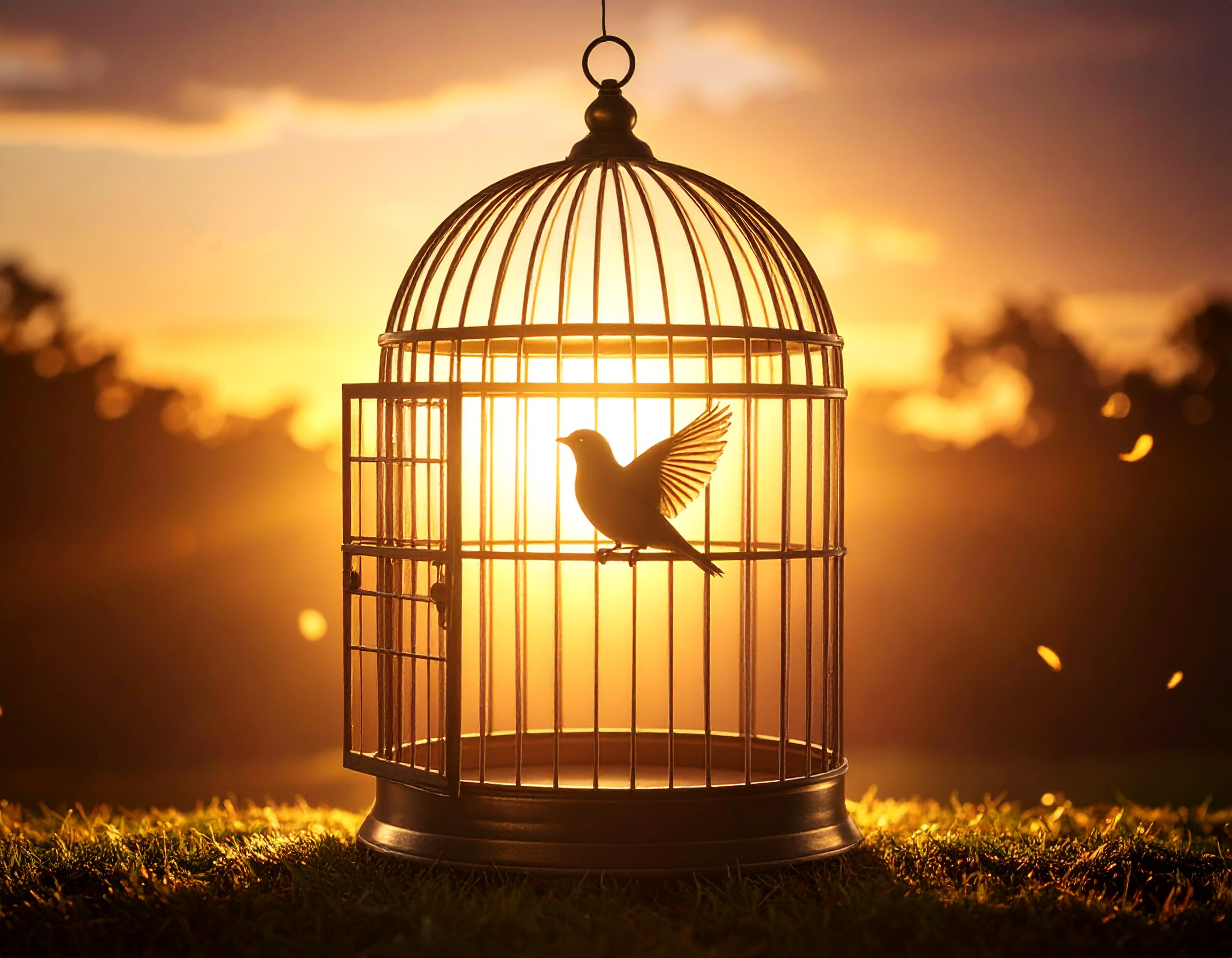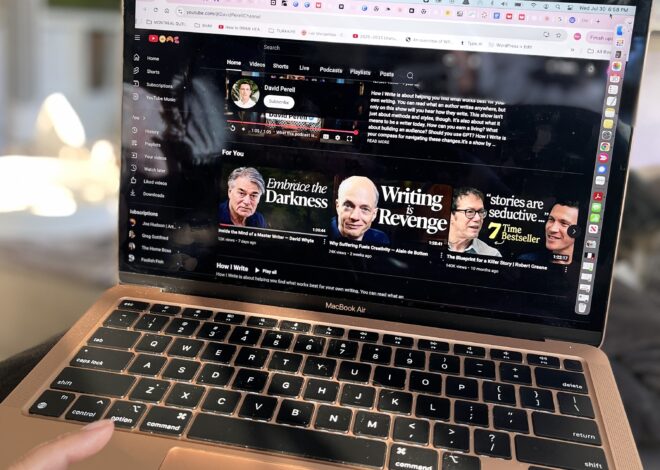
Becoming Invisible: How I Mastered Making Myself Small
Do you have that friend who somehow hijacks your good news and turns it into their personal therapy session? The one who asks “How are you?” then launches into their own monologue before you can even open your mouth?
Yeah. Me too.
For years, I told myself I was just being a compassionate listener. What I didn’t realize? I had become a master of holding space for everyone else while no one held space for me.
The relational patterns that surrounded me throughout my life weren’t just comfortable or familiar. They were my teachers, instructing me in the delicate art of shrinking myself, of being perpetually present for others while remaining absent from my own experience.
Sound familiar? Let me tell you how I learned to disappear.
The Early Curriculum: Learning to Disappear
Picture this: countless conversations with my mother that revolved entirely around her universe. Her perspectives dominated every exchange. Her frustrations filled every silence. Her interpretations of the neighbors’ lives became the soundtrack of our relationship.
I wasn’t completely invisible in these moments, but I certainly wasn’t invited to participate as an equal. My presence was acknowledged, sure, but my voice required force to be heard. When I did manage to insert myself into these dialogues, it felt like I was rudely interrupting a carefully orchestrated monologue that had no natural pause for my contributions.
This became my emotional blueprint.
It whispered to me that love meant listening without expecting to be heard in return. It taught me that I demonstrated care by stepping aside, by making myself smaller so others could expand. I learned to become the container that holds everyone else’s experiences while never allowing myself to become the contents worth examining.
The lessons were subtle but persistent:
• My role was to absorb, to reflect, to provide a safe harbor for others’ storms but never expect anyone to weather mine
• I should become fluent in the language of emotional labour without ever learning to ask for reciprocity
• Love meant listening without expecting to be heard in return
Becoming a Professional Audience Member
Here’s the brutal truth: I naturally gravitated toward friendships and romantic relationships that mirrored this familiar rhythm.
The pattern looked like this: I’d find myself in countless rooms where people spoke endlessly about their lives, their dreams, their struggles, their opinions, but never once paused to inquire about my inner world. I’d sit through lengthy rants and emotional downloads, nodding along with what I believed was empathy, only to leave these encounters with the hollow realization that no one had bothered to check in with my heart.
For far too long, I mistook this one-sided dynamic for genuine connection. I confused being needed with being valued, being useful with being loved, intensity with intimacy.
I told myself that my ability to listen without judgment was a gift I was offering to the world. What I didn’t recognize? I was actually abandoning myself in the process.
These relationships felt familiar because they replicated the emotional environment of my childhood. They required nothing of others except that they continue being themselves while demanding everything of me. I had to shrink my joy, minimize my struggles, and edit my authentic responses to maintain the delicate balance that kept everyone else comfortable.
The Subtle Harm of Emotional Neglect
I spent years confusing emotional neglect with emotional safety. I convinced myself that if I wasn’t being actively criticized or dismissed, I was being valued and appreciated.
But subtle neglect creates something far more insidious than obvious rejection. It teaches you to question your fundamental right to be seen, heard, and known.
This quiet form of relational violence ingrained devastating beliefs deep within my psyche:
• Keep your joy muted and your pain even quieter
• Your primary responsibility is to make others comfortable, regardless of the cost to your well-being
• Being tolerated equals being loved; being useful equals being cherished
The brutal reality? Many of the people I called friends throughout my life never truly saw me as a complete person. They saw a mirror that reflected their own experiences back to them, a backdrop against which their own dramas could unfold more dramatically, someone who would nod and understand and absorb without ever requiring the same level of attention or care in return.
But the moment I offered something genuinely bright or raw or hopeful from my own experience? It didn’t fit their narrative. It was deflected, minimized, or simply ignored.
This created a devastating feedback loop: The more I was overlooked, the more I learned to make myself overlookable. The more my authentic self was met with indifference, the more I learned to present only the parts of myself that others found useful or comfortable.
The Exhausting Audition That Never Ends
This pattern isn’t merely disappointing or frustrating. It’s actively re-traumatizing.
Every time I hold myself back to maintain someone else’s comfort, I reinforce the deeply held belief that my voice doesn’t belong in the room. Every time I shrink to accommodate someone else’s need to dominate the conversation, I confirm that I am destined to remain the supporting character in someone else’s narrative.
My husband recently asked me a question that stopped me in my tracks. He wanted to know why I continue engaging with a particular friend who consistently redirects my joy into gloom, who transforms every conversation into an opportunity to focus on negativity and struggle.
His question: “What do you actually receive from this relationship? What need does it meet or what value does it add to your life?”
The question hung in the air between us because I realized I didn’t have an answer. It was a great question. Something that provoked me to write this post.
What I get from these relationships isn’t nourishment or growth or genuine connection. What I get is the familiar feeling of being unseen. I receive the predictable experience of being heard but never truly received, of being present but never fully welcomed. This feeling has become my emotional home base, the place I return to again and again because it requires no adjustment, no growth, no risk.
But this familiarity comes at an enormous cost. It keeps me withholding my light, dimming my natural enthusiasm, constantly trying to earn a place in conversations that were never designed to include me as an equal participant, perpetually auditioning for a role I’ve already been cast in.
The Compulsion to Choose the Same Wrong Person
The most bewildering part? I consistently continue choosing people who replicate these dynamics. It’s as if I’m trapped in an endless loop, replaying the same relational script from my childhood with different actors, hoping that somehow this time the ending will be different.
Part of me believes that if I can finally earn genuine love and appreciation from someone who operates like this, I will somehow heal the original wound and feel complete.
But what actually happens? I keep inviting people into my life who are emotionally self-absorbed or quietly dismissive, who need an audience rather than a friend, who require a therapist rather than offering mutual support.
And I keep accepting the same diminished role, the one who stays small and supportive, never too loud or demanding, never too much.
The patterns I recreate are painfully consistent:
• I choose people who drain my energy rather than replenish it
• I mistake surface-level interaction for deep connection
• I confuse chaos and drama for intimacy and closeness
• I become an unpaid therapist in relationships where no one ever asks about my inner world
These choices aren’t random or accidental. They’re driven by a deep, unconscious belief that this is what I deserve, that this is the only kind of love available to me.
When Joy Becomes the Enemy
One of the most painful aspects of these relationships? How they respond to my attempts to share positive experiences or genuine enthusiasm.
There’s a particular type of person who seems to have made rejecting light their favorite hobby. When you share something wonderful happening in your life, they immediately counter with bad news or redirect the conversation to their own difficulties. When you express hope or excitement, they find ways to dim it with pessimism or skepticism.
This response isn’t accidental or unconscious. It’s a deliberate choice to prioritize their own emotional needs over yours, to use your joy as a launching pad for their own struggles. It sends a clear message that your positive experiences are unwelcome, that your happiness is somehow threatening or inappropriate.
When I remain in relationships with people like this, I begin to internalize their rejection of my authentic self. I start questioning whether my joy is naive, whether my hope is foolish, whether my natural enthusiasm is somehow wrong or excessive.
I begin to wonder if I should stop sharing beautiful moments altogether, if I should learn to keep my light hidden to avoid making others uncomfortable.
But I’m finally understanding: The problem isn’t with my joy or my hope or my enthusiasm. The problem is that I’ve allowed people into my life who can’t celebrate my light because they’re too consumed with their own darkness.
The Radical Act of Wanting More
Lately, I’ve been paying attention to a quiet voice inside me that has been asking for more: More genuine exchange in my conversations. More mutual curiosity in my friendships. More space for my own experiences and perspectives. More relationships that inspire and energize rather than drain and diminish me.
This voice is asking me to stop settling for relationships that require me to remain quiet and small. It’s challenging me to stop confusing intensity with intimacy, to stop assuming that being a good listener means being invisible.
What my heart is yearning for feels almost revolutionary in its simplicity: Conversations that inspire me rather than exhaust me. Friends who are genuinely curious about my passions and dreams. People who can witness my happiness without immediately trying to diminish it. Relationships that make space for the complete version of who I am.
These desires feel unfamiliar and almost dangerous because they’re so different from what I’ve known. But unfamiliar doesn’t mean wrong. Sometimes unfamiliarity is the doorway to healing. Sometimes it’s what freedom looks like when you’ve been living in a cage for so long that you forgot what open space feels like.
The Permission I Never Knew I Needed
Perhaps the strangest aspect of this entire journey? Recognizing how long I waited for permission to exist fully as myself.
Permission to be interesting and complex. To take up space in conversations. To share my joy without apologizing for it. To expect reciprocity in my relationships. To be seen and known and valued for who I actually am.
But I’m finally understanding: Anyone who makes you feel like you need permission to exist authentically is exactly the kind of person whose approval you never actually needed in the first place.
The people who truly love you don’t require you to shrink or hide or apologize for your light. They celebrate it. They’re drawn to it. They want to bask in it and reflect it back to you.
I’m done.
Done auditioning for a supporting role in my own life story. Done being the friend who absorbs everyone else’s chaos but never shares her own joy or struggles. Done fitting myself into spaces that are too small for who I’m becoming and who I’ve always been underneath all the shrinking.
The woman I’m becoming refuses to disappear. She takes up space unapologetically. She shares her joy without editing it for others’ comfort. She expects to be seen and heard and valued in her relationships. She knows that her light isn’t too much for the right people, and she’s no longer interested in dimming it for the wrong ones.
This is my declaration of independence from the art of becoming invisible. This is my commitment to the much more challenging and rewarding practice of showing up fully, of being seen completely, of loving and being loved without conditions or compromises.
The stage is set. The audience is waiting. And for the first time in my life, I’m ready to step into the spotlight of my own story.
This reflection represents personal insights and experiences shared for contemplative purposes. For professional guidance regarding relationship challenges or patterns, please consult a qualified therapist or counsellor.



